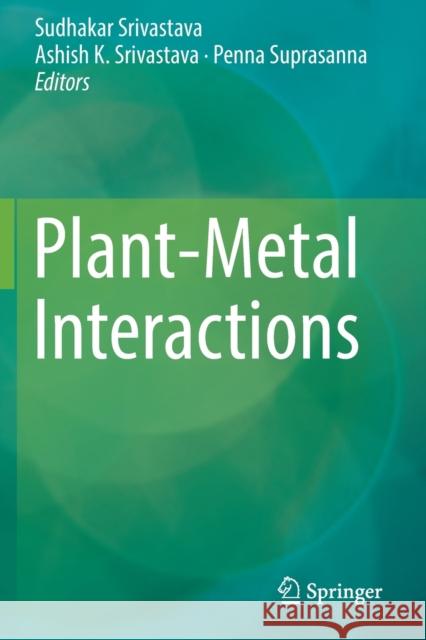Plant-Metal Interactions » książka



Plant-Metal Interactions
ISBN-13: 9783030207342 / Angielski / Miękka / 2020 / 316 str.
Plant-Metal Interactions
ISBN-13: 9783030207342 / Angielski / Miękka / 2020 / 316 str.
(netto: 843,44 VAT: 5%)
Najniższa cena z 30 dni: 848,19
ok. 16-18 dni roboczych.
Darmowa dostawa!
Dr. Sudhakar Srivastavais an Assistant Professor. He obtained M.Sc. in Botany from University of Lucknow in 2002 and Ph.D. in Botany from CSIR-National Botanical Research Institute (CSIR-NBRI) and University of Lucknow in 2008. After obtaining Ph.D., he served as Scientific Officer in Bhabha Atomic Research Centre (BARC), Mumbai from June, 2009 to March, 2014 and then he moved to the Institute of Environment and Sustainable Development (IESD), Banaras Hindu University (BHU), in April, 2014. He has more than sixteen years of research experience in the field of plant-metal interactions with major interest on arsenic stress responses of plants. He has published 65 research articles and 20 review and letter articles in high impact International and National journals. He has also published 20 book chapters in the books of International repute and few general articles in popular magazines and websites. He has also received several awards for his contributions, among which the notable ones are Young Scientist Award of National Academy of Sciences, India (NASI), Allahabad in 2011, Young Scientist Award from Uttar Pradesh Council of Science & Technology (UPCST) in 2013-2014 and Young Scientist Award from Science and Engineering Research Board (SERB) in 2015. Dr. Srivastava is also NAAS Associate of National Academy of Agricultural Sciences and a life member of several societies as well as non-governmental organizations. He is also an Associate Editor of reputed International journals, Acta Physiologiae Plantarum and Frontiers in Ecology and Evolution. He is also an expert reviewer of several journals and project funding agencies.
Metal toxicity and deficiency are both common abiotic problems faced by plants. While metal contamination around the world is a critical issue, the bioavailability of some essential metals like zinc (Zn) and selenium (Se) can be seriously low in other locations. The list of metals spread in high concentrations in soil, water and air includes several toxic as well as essential elements, such as arsenic (As), cadmium (Cd), chromium (Cr), aluminum (Al), and selenium (Se). The problems for some metals are geographically confined, while for others, they are widespread. For instance, arsenic is an important toxic metalloid whose contamination in Southeast Asia and other parts of world is well documented. Its threats to human health via food consumption have generated immense interest in understanding plants’ responses to arsenic stress.
Metals constitute crucial components of key enzymes and proteins in plants. They are important for the proper growth and development of plants. In turn, plants serve as sources of essential elements for humans and animals. Studies of their physiological effects on plants metabolism have led to the identification of crucial genes and proteins controlling metal uptake and transport, as well as the sensing and signaling of metal stresses. Plant-Metal Interactions sheds light on the latest development and research in analytical biology with respect to plant physiology. More importantly, it showcases the positive and negative impacts of metals on crop plants growth and productivity.
1997-2026 DolnySlask.com Agencja Internetowa
KrainaKsiazek.PL - Księgarnia Internetowa









